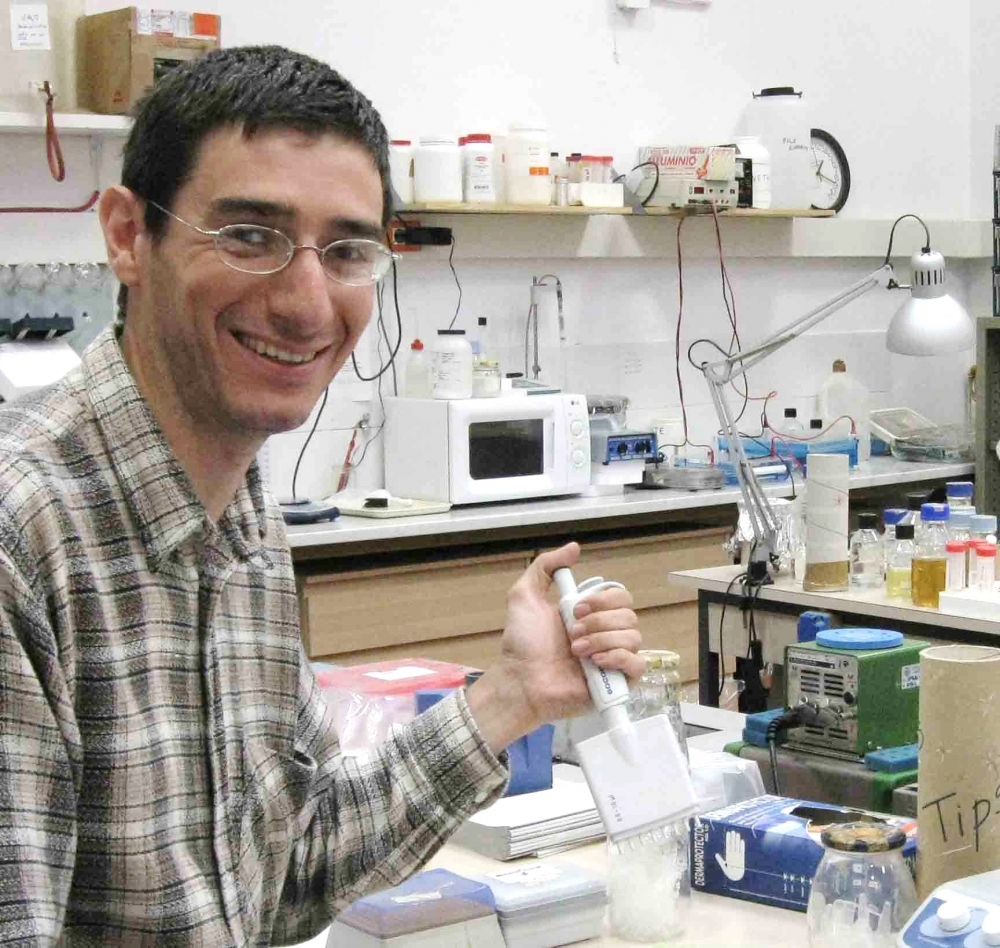Legume tasters: The panoply of symbiotic rhizobia host preference
Speaker: prof. Alessio Mengoni, University of Florence, Italy
Talc: "Legume tasters: The panoply of symbiotic rhizobia host preference"
Time: 17/12/2021, 9:00 am
Venue: Intercollegiate Faculty of Biotechnology, Abrahama 58, hall 042
 Bio: Alessio Mengoni graduated in biological sciences in 1997 and obtained a PhD in genetics from the University of Pavia in 2000. He is associate professor of Genetics, qualified as full professor, at the Department of Biology of the University of Florence and has been visiting professor at the Intercollegiate Faculty of Biotechnology MUIG & GU, Gdansk, Poland and at the School of Sun-Yat Sen University, Guangzhou, China. He holds courses in genetics, genetic engineering, genomics and systems biology in the degree programs in Biotechnology and Biology. Main research interests deal with the study of interactions between plants and microorganisms, in particular related to plant growth-promoting bacteria and plant microbiome for applications in agricultural and environmental biotechnology. He is the author of over 170 scientific articles, a patent and founding partner of a spin-off company of the University of Florence for microbiological and genetic analysis (EcolGene Srl). Bibliometric indices: h index = 37, 4105 total citations (Scopus database, October 2021). He has been PI and partner in the last 5 years of various national and international projects, including a Italian Ministry of Agriculture funded project on bioinoculants (MICRO4Legumes), a project on microbial genomic diversity of the National Research Plan in Antarctica (ANTreN), a soil metagenomics project (METATRACK, CR Firenze Foundation), a project on the microbiome of patients affected by Cystic Fibrosis (Italian Cystic Fibrosis Research Foundation), and two H2020 projects on plant bioinoculants (SIMBA) and International Space Station microbiota (BIOWYSE).
Bio: Alessio Mengoni graduated in biological sciences in 1997 and obtained a PhD in genetics from the University of Pavia in 2000. He is associate professor of Genetics, qualified as full professor, at the Department of Biology of the University of Florence and has been visiting professor at the Intercollegiate Faculty of Biotechnology MUIG & GU, Gdansk, Poland and at the School of Sun-Yat Sen University, Guangzhou, China. He holds courses in genetics, genetic engineering, genomics and systems biology in the degree programs in Biotechnology and Biology. Main research interests deal with the study of interactions between plants and microorganisms, in particular related to plant growth-promoting bacteria and plant microbiome for applications in agricultural and environmental biotechnology. He is the author of over 170 scientific articles, a patent and founding partner of a spin-off company of the University of Florence for microbiological and genetic analysis (EcolGene Srl). Bibliometric indices: h index = 37, 4105 total citations (Scopus database, October 2021). He has been PI and partner in the last 5 years of various national and international projects, including a Italian Ministry of Agriculture funded project on bioinoculants (MICRO4Legumes), a project on microbial genomic diversity of the National Research Plan in Antarctica (ANTreN), a soil metagenomics project (METATRACK, CR Firenze Foundation), a project on the microbiome of patients affected by Cystic Fibrosis (Italian Cystic Fibrosis Research Foundation), and two H2020 projects on plant bioinoculants (SIMBA) and International Space Station microbiota (BIOWYSE).
Abstract . Mutualistic interactions have great importance in biology and are key to either macro- and micro-ecosystems functioning, from biogeochemical cycles to the animal and plant microbiome. Many studies have been performed to investigate the molecular aspects of mutualism, however, the genetic repertoire needed for efficient association with host by the microbial symbionts is still poorly understood. Several studies highlighted that the expression of the desired phenotype in the host resides in species-specific, even genotype-specific interactions between the symbiotic partners. Consequently, there is a need to dissect such an intimate level of interaction, aiming to identify the main genetic components in both partners playing a role in symbiotic differences/host preferences [1]. The rhizobia are an exemplary model of microbial mutualist. They are facultative mutualist partners of leguminous plants, with which they establish nitrogen-fixing symbioses.
By applying complementary approaches spanning from computational reconstruction of metabolic interactions to transcriptomic and comparative genomic analyses, we dissected genotype-by-genotype interactions in the model symbiotic partnership between the rhizobium Sinorhizobium meliloti and the host plant (Medicago spp.).
Results from integrated rhizobium-plant genome-scale metabolic model [2], genome-wide association [3] and comparative transcriptomic analyses [4] of late and early stages of symbiosis will be presented and discussed in the light of explaining and exploiting the large genomic diversity rhizobial symbiont populations in the perspective of improving microbial inoculants formulations in sustainable agriculture practices.





